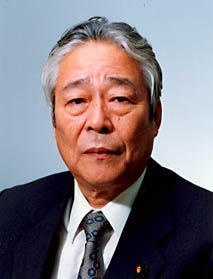Thank you for reading Observing Japan. This post is available to all readers.
If you are looking for timely, forward-looking analysis of the stories in Japans’s politics and policymaking that move markets, I have launched a new service through my business, Japan Foresight LLC. For more information about Japan Foresight’s services or for information on how to sign up for a trial, please visit our website or reach out to me.
I am thinking of launching a monthly conference call exclusively for paid subscribers. I would be interested in readers’ thoughts on how to format the conference call. Please share your opinions in the survey below.
Aoki Index. n. The sum of the cabinet’s approval rating and the approval rating of the leading ruling party. A government is said to be in danger when the index falls below 50%. Named for longtime LDP upper house member Aoki Mikio.
In the latest Asahi Shimbun poll, conducted on 15-16 June, Prime Minister Kishida Fumio’s score on the Aoki Index fell to 41%, which is perhaps sufficient to answer the question posed in headline.
But while the Kishida government’s approval rating reached a new low of 22%, the real problem for Kishida is that the Liberal Democratic Party’s (LDP) support is cratering. For the first time since the Asahi Shimbun began using random digit dialing (RDD) in 2001 — and excluding its time in opposition from 2009 to 2012 — the party’s support has fallen below 20%, reaching 19%. Its approval is still ahead of the Constitutional Democratic Party (8%), but this is cold comfort for the LDP, given that when respondents were asked which party they would support in proportional representation voting in a general election, the LDP’s lead was only 24% to 19% for the CDP.
Perhaps the only thing working in the LDP’s favor is that no general election has to be held until October 2025, which theoretically gives the party some time to reverse its decline. But it seems increasingly certain that it will not be Kishida who gets the chance to execute a turnaround. While not responsible for the original kickback scandal itself, the prime minister has been unable to use political reform to his advantage. In this poll, 83% of respondents disapprove of Kishida’s handling of the scandal. Only 20% think that the LDP’s political reform bill will be greatly (1%) or somewhat (19%) effective in preventing future scandals. 84% say that the LDP’s predisposition to campaign finance scandals is unchanged.
Not only has Kishida’s handling of the political reform process utterly failed to change the public mood, he has also managed to alienate his most important supporter, Asō Tarō, who disapproved of Kishida’s dealmaking with Kōmeitō to secure its support for a reform bill before the end of the parliamentary session. Asō has not only been meeting regularly with LDP Secretary-General Motegi Toshimitsu, who has made little secret of his ambitions to win the party leadership himself, but he has gone public with his complaints, noting at a campaign finance party for Asō faction member Saitō Hiroaki that the party “cannot just do reforms that will leave problems for the future.” (Saitō also reportedly hinted at a call for Kishida to step down.) With local party organizations also calling for Kishida to step aside, the prime minister looks increasingly friendless — and, as Nikkei reports, he is also running out of options for save himself. If Kishida were to move to use his power to call a snap election, it could trigger an open rebellion on the party’s backbenches. Meanwhile, if he were to reshuffle his cabinet and party leadership, it could expose just how weak his support is, if senior party members were unwilling to join his government.1
Kishida himself may recognize that the end is rapidly approaching. In parliamentary deliberations on Monday, 17 June, Kishida acknowledged the “voices in the party” calling for him to resign and said that he is weighing how he should take responsibility. CDP leader Izumi Kenta may be trying to engineer a spectacular end to the Kishida government — seeing whether LDP members could be tempted to support or abstain from a no-confidence motion — but it seems more likely that it will end in a whimper, with Kishida admitting at some point during the summer that he will not be seeking reelection.
Of course, this is precisely what precipitated Suga Yoshihide’s decision not to run in the 2021 leadership election, clearing the way for Kishida.





Have you seen this?
https://www.nippon.com/en/in-depth/d01000/demise-of-factions-boosts-prime-minister-kishida%E2%80%99s-prospects-clouds-ldp-outlook.html